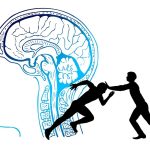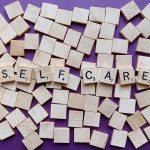
Self-confidence is the cornerstone of success in various aspects of life. It shapes our beliefs about our abilities, influences our decisions, and determines our level of motivation and resilience. While some individuals seem to possess an innate sense of self-assuredness, others may struggle to find their confidence. The good news is that self-confidence is not a fixed trait; it can be developed and nurtured over time. In this comprehensive guide, we will explore the best way to build self-confidence, offering practical strategies, exercises, and insights to help you embark on a journey towards greater self-assurance.
Understanding Self-Confidence
Before delving into strategies to build self-confidence, it’s crucial to have a clear understanding of what self-confidence is and how it operates.
What is Self-Confidence? Self-confidence is the belief in one’s own abilities, competence, and worth. It is not arrogance or an overestimation of one’s capabilities, but a balanced and realistic assessment of oneself. Self-confidence empowers individuals to take risks, set ambitious goals, and handle life’s challenges with resilience.
The Importance of Self-Confidence
Understanding the significance of self-confidence can motivate individuals to work on building it. High self-confidence has numerous benefits, such as improved mental health, better performance in academics or work, and healthier relationships.
Identifying Factors That Influence Self-Confidence
To build self-confidence effectively, it’s essential to recognize the factors that contribute to its development or hinder its growth.
1- Childhood and Early Experiences
Childhood experiences, including parenting, peer interactions, and schooling, play a vital role in shaping self-confidence. Positive reinforcement and encouragement in early years can foster a healthy sense of self-esteem.
2- Self-Talk and Inner Critic
The way we talk to ourselves, often referred to as self-talk, can significantly impact self-confidence. Negative self-talk and an inner critic that constantly undermines our abilities can be detrimental to building self-confidence.
3- Comparison and Social Media
Constantly comparing oneself to others, especially in the era of social media, can erode self-confidence. It’s essential to recognize that people typically present a curated version of their lives online, which may not reflect reality.
4- Fear of Failure and Rejection
Fear of failure and rejection can be paralyzing and prevent individuals from taking necessary risks. Learning to embrace failure as a part of growth is crucial for building self-confidence.
The Best Way to Build Self-Confidence
Now that we have a foundational understanding of self-confidence and the factors influencing it, let’s explore the best way to build self-confidence.
1- Set Realistic Goals
Setting achievable goals is a fundamental step in building self-confidence. Start with small, manageable objectives, and gradually work your way up to more significant challenges. Success in these smaller tasks will boost your confidence for larger endeavors.
2- Practice Self-Compassion
Developing self-compassion involves treating yourself with the same kindness and understanding that you would offer to a friend. Avoid self-criticism and acknowledge that nobody is perfect. Embrace your flaws and learn from your mistakes.
3- Develop Competence
Building self-confidence often begins with acquiring skills and knowledge in areas of interest. Take courses, seek mentors, and invest time in learning. As you become more proficient in your chosen field, your self-confidence will naturally grow.
4- Challenge Negative Thoughts
Combat negative self-talk and the inner critic by challenging irrational beliefs about yourself. When you catch yourself thinking negatively, ask yourself whether those thoughts are based on facts or assumptions. Challenge them with evidence to the contrary.
5- Accept Rejection and Failure
Rejection and failure are inevitable aspects of life. Rather than viewing them as personal shortcomings, see them as opportunities for growth. Each rejection or failure can teach valuable lessons and contribute to your personal development.
6- Cultivate a Growth Mindset
A growth mindset is the belief that one’s abilities and intelligence can be developed through effort and learning. Embrace challenges and see setbacks as opportunities to learn and improve, rather than as limitations.
Building Self-Confidence Through Behavioral Changes
In addition to the mental and emotional aspects of self-confidence, certain behavioral changes can have a profound impact on your self-assurance.
1- Improve Body Language
Your body language communicates a lot about your self-confidence. Maintain good posture, make eye contact, and use confident gestures when interacting with others. Over time, these behaviors can influence how you perceive yourself.
2- Practice Positive Affirmations
Positive affirmations are short, positive statements that you repeat to yourself regularly. They can help rewire your thinking and boost your self-confidence. Examples include “I am capable,” “I believe in myself,” and “I am worthy of success.”
3- Expand Your Comfort Zone
One of the best ways to build self-confidence is by gradually expanding your comfort zone. Start by taking on small challenges that push you slightly out of your comfort zone. As you gain confidence in these areas, tackle more significant challenges.
4- Seek Feedback and Constructive Criticism
Feedback from others can provide valuable insights into your strengths and areas for improvement. Don’t shy away from seeking feedback, both positive and constructive. Use it as a tool for personal growth.
5- Visualize Success
Visualization is a powerful technique used by athletes, performers, and successful individuals to enhance self-confidence. Imagine yourself succeeding in various situations, and visualize the positive emotions and outcomes associated with that success.
Nurturing Self-Confidence in Social and Professional Settings
Building self-confidence is not solely an internal process. It also involves how you interact with others and navigate social and professional environments.
1- Effective Communication Skills
Improving your communication skills can boost your self-confidence in social and professional settings. Practice active listening, engage in meaningful conversations, and work on your public speaking abilities.
2- Networking and Building Relationships
Building a strong network of supportive relationships can bolster your self-confidence. Surround yourself with individuals who believe in you and your abilities. Networking can also open doors to new opportunities.
3- Handling Criticism and Rejection
In both personal and professional life, you will encounter criticism and rejection. Learning to handle these situations with grace and resilience can help maintain your self-confidence. Focus on the constructive aspects of criticism and don’t take rejection personally.
4- Assertiveness, Not Aggressiveness
Being assertive means expressing your needs, wants, and opinions while respecting the rights and boundaries of others. Assertiveness can help you stand up for yourself without being aggressive or passive. Mastering this skill can boost your self-confidence in various social situations.
Maintaining and Sustaining Self-Confidence
Building self-confidence is an ongoing process that requires continuous effort and self-awareness. In this chapter, we will discuss how to maintain and sustain the self-confidence you’ve developed.
1- Self-Care and Well-Being
Taking care of your physical and mental health is essential for maintaining self-confidence. Get adequate rest, eat well, exercise regularly, and manage stress. When you feel your best, your self-confidence is likely to be at its peak.
2- Self-Reflect and Celebrate Success
Periodically reflect on your achievements and milestones. Celebrate your successes, no matter how small they may seem. Recognizing your accomplishments reinforces your belief in your abilities.
3- Avoid Comparisons
Continuously comparing yourself to others can erode your self-confidence. Instead of focusing on what others are doing, concentrate on your progress and personal growth. Remember that everyone’s journey is unique.
4- Surround Yourself with Positivity
Surround yourself with positive influences, whether it’s supportive friends, mentors, or inspirational books and resources. A positive environment can help sustain your self-confidence and keep you motivated.
Overcoming Common Obstacles
As you work on building self-confidence, you may encounter common obstacles that can hinder your progress. In this chapter, we will address these challenges and provide strategies for overcoming them.
1- Imposter Syndrome
Imposter syndrome is a feeling of inadequacy and the fear of being exposed as a fraud, despite evidence of one’s competence. To overcome imposter syndrome, acknowledge your achievements, and remind yourself of your skills and qualifications.
.-2 Procrastination
Procrastination can be a self-confidence killer. Break tasks into smaller, manageable steps, set deadlines, and create a productive environment to combat procrastination.
3- Negative Feedback and Criticism
Negative feedback and criticism can be demoralizing, but they are also opportunities for growth. Separate your self-worth from the feedback and focus on the constructive aspects. Seek support from trusted individuals when needed.
4- Fear of Rejection
Fear of rejection can hold you back from taking necessary risks. Practice desensitization by gradually exposing yourself to situations that trigger this fear. Over time, you’ll become more resilient and confident in facing rejection.
The Journey of Self-Confidence
Building self-confidence is not a destination but a continuous journey. It’s important to recognize that setbacks and moments of self-doubt are normal. Embrace them as opportunities for growth and learning.
1- Embrace Your Uniqueness
Celebrate your individuality and the unique qualities that make you who you are. Recognize that you have strengths and abilities that are distinct from others, and these are sources of your self-confidence.
2- Seek Support and Professional Help
If you struggle with severe self-confidence issues that affect your daily life, consider seeking support from a therapist or counselor. Professional help can provide valuable tools and insights to address deep-seated self-esteem issues.
3- Pay It Forward
As you build your self-confidence, consider helping others on their own journeys. Sharing your experiences and knowledge can be a rewarding way to reinforce your self-assurance and inspire others.
Conclusion
Building self-confidence is a transformative journey that requires dedication, self-awareness, and continuous effort. By understanding the factors that influence self-confidence, adopting positive habits and behaviors, and maintaining a growth mindset, you can gradually develop the self-assurance needed to achieve your goals and lead a fulfilling life.
Remember that self-confidence is not a destination but a lifelong journey, and with perseverance, you can become the confident and resilient person you aspire to be.







